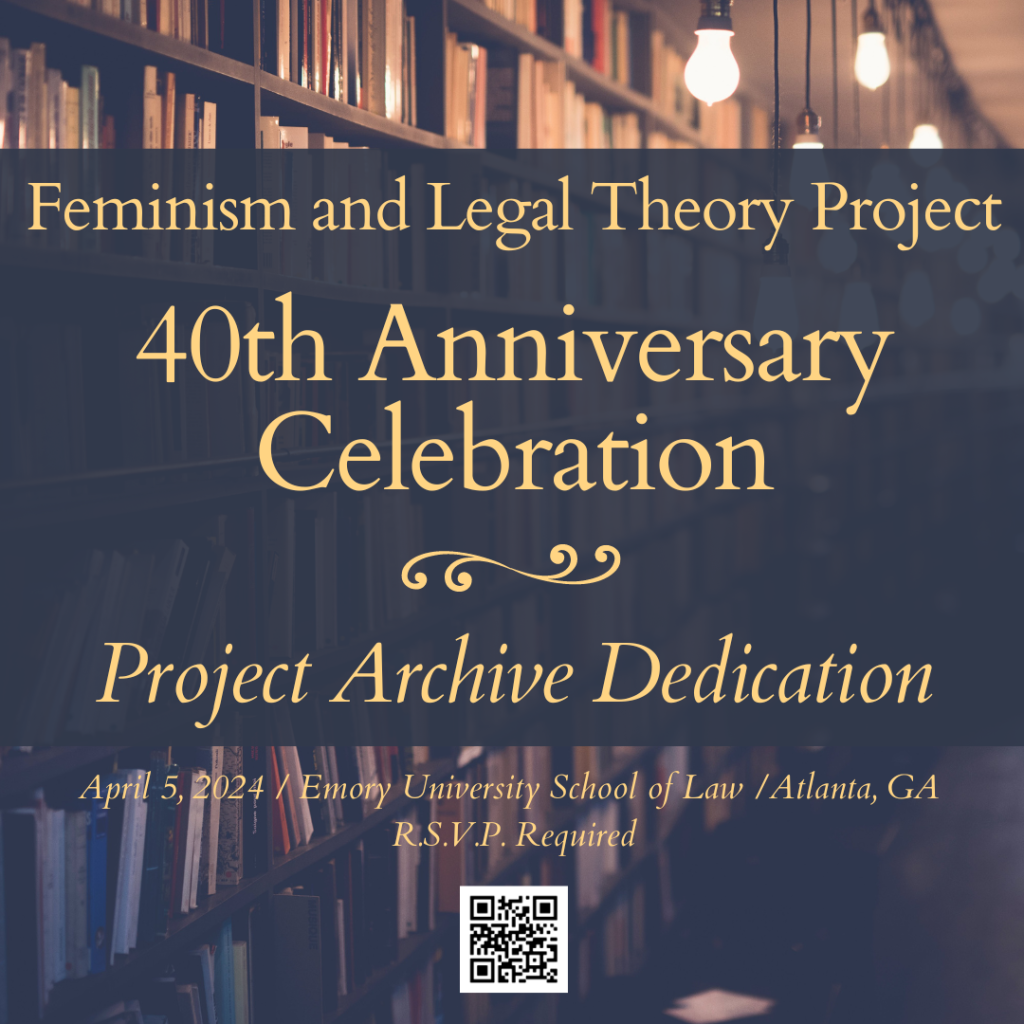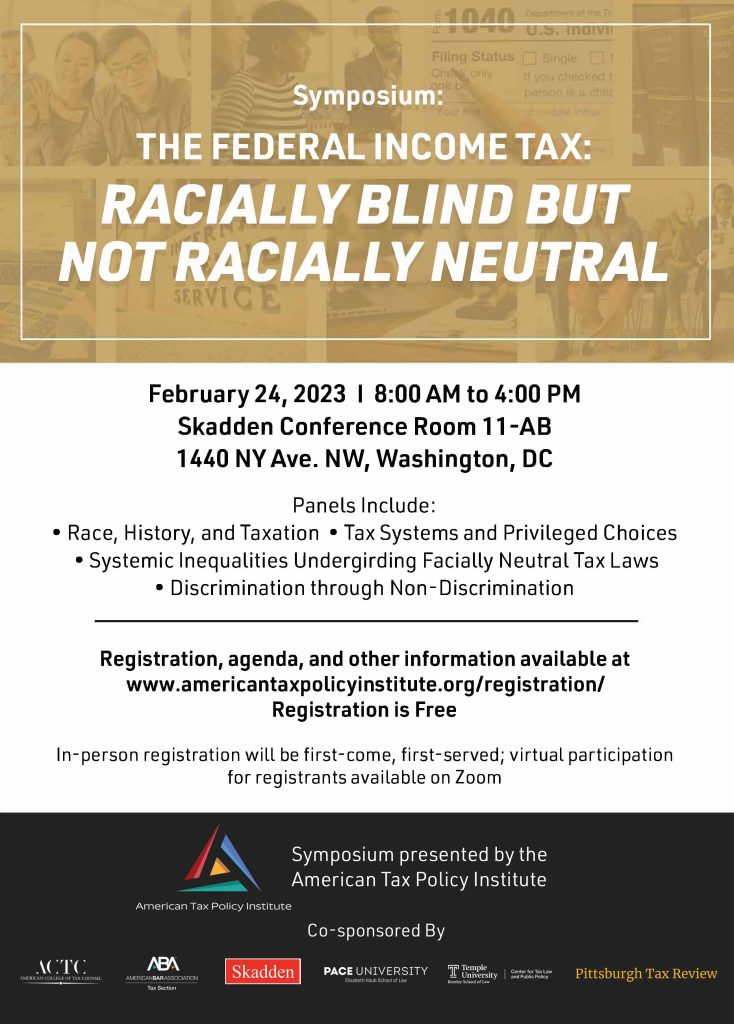The Yale Journal of Law & Feminism invites you to register for our symposium: Meeting the Moment: Legal Frameworks for Feminist Futures. This event will be held on Friday, March 31—the last day of Women’s History Month—at Yale Law School from 8:30 a.m. to 6:00 p.m. It is free and open to the public.
Both globally and domestically, trans and nonbinary people, women, the LGBTQ+ community, and racially subjugated groups are under attack from political regimes hostile to our rights and liberation. Against this backdrop, it is vital that we envision and build feminist futures. The purpose of this symposium is to grapple with the relationship between feminist legal theory and practice, with an eye toward what you can do to meet the moment. We’re bringing preeminent feminist scholars together with legal advocates and practitioners to discuss some of the most pressing issues of our times. We hope you’ll join the conversation.
Meeting the Moment
Legal Frameworks for Feminist Futures
(This schedule is tentative. More speakers will be added!)
8:30 a.m. – 9:00 a.m.
Registration & Breakfast
(Registration will be open all day.)
Morning Panels
9:00 a.m. – 10:10 a.m.
We, the Feminists
The Symposium’s opening panel will reflect on how the field of feminist legal thought emerged and grapple with the question of which groups of people have been integral, or marginal, to its development.
Sarah Deer
University Distinguished Professor at the University of Kansas and Chief Justice for the Prairie Island Indian Community Court of Appeals
Deborah Dinner
Professor of Law at Cornell School of Law
Joanna L. Grossman
Ellen K. Solender Endowed Chair in Women and the Law and Professor of Law at SMU Dedman School of Law
Serena Mayeri
Professor of Law & History at the University of Pennsylvania Carey Law School
10:20 a.m. – 11:30 a.m.
Meeting the Moment: Why Feminist Legal Thought Matters
This panel will frame the Symposium and address why feminist legal thought matters—and why it matters now.
Alexandra Brodsky (moderator)
Staff Attorney at Public Justice & Visiting Lecturer in Law at Yale Law School
Elizabeth F. Emens
Thomas M. Macioce Professor of Law at Columbia Law School
Catharine A. MacKinnon
Elizabeth A. Long Professor of Law at University of Michigan Law School & James Barr Ames Visiting Professor of Law at Harvard Law School
Keina Yoshida
Barrister Ass. at Doughty Street Chambers, Legal Adviser at Center for Reproductive Rights & Visiting Fellow at the Center for Women, Peace & Security
11:40 a.m. – 12:40 p.m.
Keynote Address
Welcome Remarks: Jelani Hayes (J.D. ’23, Ph.D. candidate in History at Harvard University)
Editor-in-Chief of the Yale Journal of Law & Feminism
Keynote speaker to be announced!
12:40 p.m. – 1:40 p.m.
Lunch
(Lunch will be provided to the first 150 attendees.)
Afternoon Panels
1:50 p.m. – 3:00 p.m.
Beyond “Choice”
Contributing to the post-Dobbs reproductive justice dialogue, this panel is designed to move the discussion beyond the question of “choice” and give weight to the ways in which discourses around the right to have an abortion have shaped law and public opinion.
Aziza Ahmed
Professor of Law and R. Gordon Butler Scholar in International Law at Boston University School of Law
Michele Goodwin
Chancellor’s Professor of Law at the University of California, Irvine School of Law
Patrice D. Douglass
Assistant Professor in Gender and Women’s Studies at the University of California, Berkeley
Patrice D. Douglass holds a Ph.D. and M.A. in Culture and Theory from the University of California, Irvine and a M.A. in Ethnic
3:10 p.m. – 4:20 p.m.
Challenging Carceral Feminism
This panel engages with the critique of carceral feminism–and the critique of the challenge to the feminist reliance on the criminal legal system.
Kate D’Adamo
Policy & Advocacy Advisor at Reframe Health & Justice Consulting
Aya Gruber
Professor of Law at the University of Colorado Law School
I. India Thusi
Professor of Law at the Maurer School of Law at the Indiana University Bloomington & Senior Scientist at the Kinsey Institute
4:30 pm. – 5:40 p.m.
Rethinking Family Regulation
This panel will interrogate the structural harms imbedded in the family regulation system, including its roots in punitive public welfare regimes, disparate harms in Black and Indigenous communities, discrimination against parents with disabilities, and the system’s recent intramentalization in efforts to remove children from their homes who seek gender-affirming care.
Douglas NeJaime (moderator)
Anne Urowsky Professor of Law at Yale Law School
Jennifer Levi
Senior Director of Transgender and Queer Rights at GLAD
Robyn M. Powell
Associate Professor at the University of Oklahoma College of Law
Lisa Sangoi
Co-Founder & Co-Director at Movement for Family Power
BeKura Shabazz
President & Founder at Coalition for Families Against Child Separation



 On April 5, 2024, the Feminism and Legal Theory Project at Emory University School of Law will celebrate its 40th Anniversary and the dedication of the FLT Archive to MacMillan Law Library at Emory.
On April 5, 2024, the Feminism and Legal Theory Project at Emory University School of Law will celebrate its 40th Anniversary and the dedication of the FLT Archive to MacMillan Law Library at Emory.